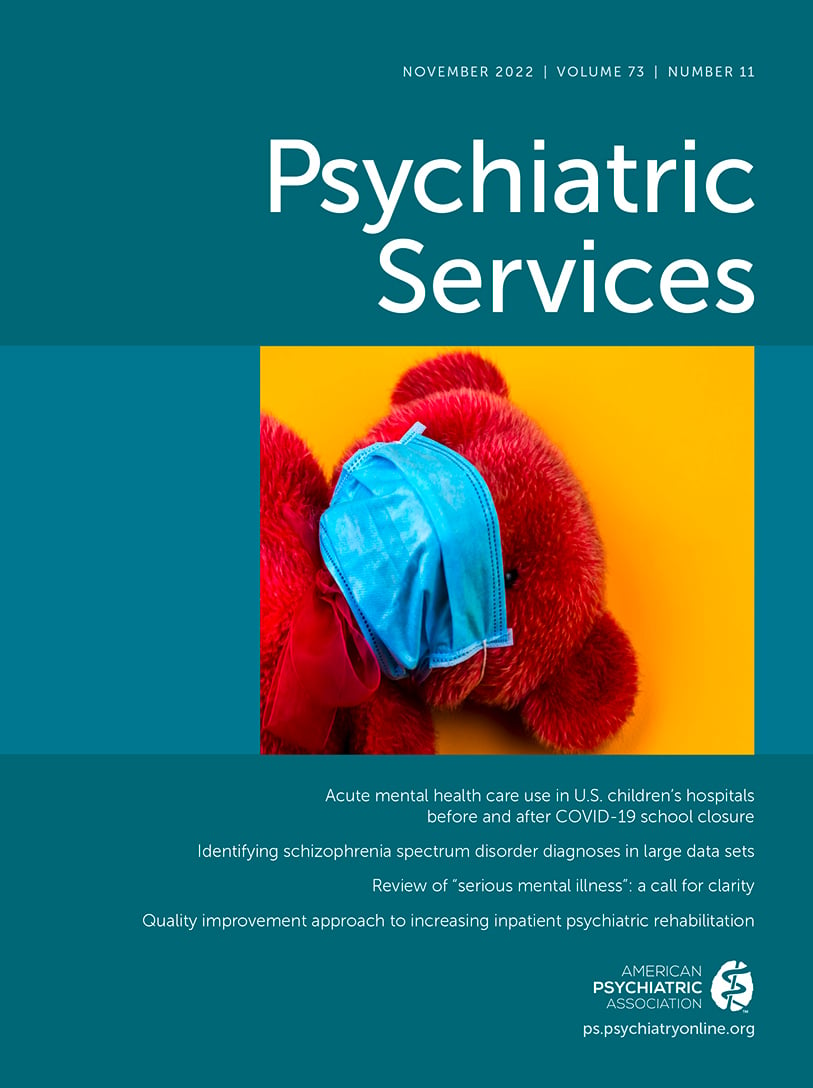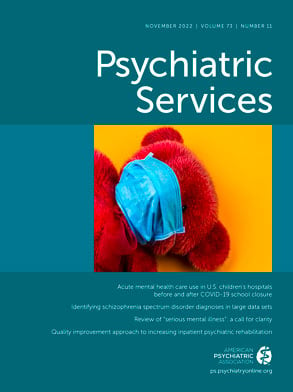In their column “School Mental Health Professionals’ Knowledge of Stereotypes and Implicit Bias Toward Black and Latinx Youths,” Liu and colleagues (
1) highlight two studies that are part of a larger project to develop an online implicit bias intervention for school-based mental health clinicians. The literature on implicit bias affecting adults in general medical care is well established. Liu et al.’s column is part of a burgeoning literature that is exploring implicit bias and its impact on youths in mental health settings.
For over 30 years, mental health treatment programs in schools have been the primary setting where youths receive mental health care. The development of these programs has increased access to mental health treatment, but very little is known about the quality of that treatment and whether providers refer students to evidence-based treatments and specialized mental health care settings (e.g., residential, inpatient, and day schools). With schools being the most common point of entry for mental health services for minoritized youths, adoption of treatment algorithms and standardized health tools and guidelines in school settings might help to reduce implicit bias against racial-ethnic minority groups among school mental health care professionals. Although school mental health services address some disparities, such as treatment access, they do not necessarily focus on treatment engagement or outcomes, which are thought to be heavily influenced by implicit biases among health care professionals. Despite the overall increase in school-facilitated access to mental health care, Black and Latinx youths continue to receive less and lower-quality care than their White counterparts.
School mental health professionals have been the mainstay of providing mental health care to children and adolescents in the United States. Many of these professionals are young, with the position often being their first job after graduation. These jobs often are in school districts with relatively large Black and Latinx populations, and many of these young clinicians have chosen to work in these settings to make a difference. Liu et al. show that many of these young professionals feel that they have awareness of bias when, in fact, they have implicit bias and lack awareness of the underlying challenges. The findings of implicit bias discussed in the column are not shocking and have been previously reported in the literature. The authors’ stated goal of providing online implicit bias interventions for school-based mental health clinicians is laudable.
However, many administrators and clinicians find themselves in a political climate where many school districts are banning opportunities to address the implications of race and ethnicity. Many of these bans extend to mental health programs and efforts to address implicit bias. Further complicating this issue is the fact that many state legislatures are also developing statutes that ban efforts to address issues such as race in school settings. Perhaps even more concerning is the fact that many of these recent efforts have conflated critical race theory with mental health concepts such as social and emotional learning. Although these efforts mainly focus on race and ethnicity, more recently the mental health treatment of LGBTQ+ youths has also come under increasing fire in school-based treatment programs.
Liu et al. suggest that the adoption of the Implicit Association Test might help increase awareness of racial-ethnic stereotypes and racial-ethnic implicit biases of mental health professionals in school mental health settings. The test also has promise for addressing health care disparities and inequities in mental health treatment for minoritized youths.
Although school mental health services might address some disparities such as access to mental health treatment, further studies might also address factors such as treatment engagement, referral pathways, the quality of evidence-based interventions and onset of illness, treatment, and recovery for minoritized youths. Knowledge of racial bias among mental health professionals in school settings can help in addressing health care disparities and inequities in mental health care decision making for minoritized youths. However, Liu and colleagues did not discuss structural barriers, such as underfunded school mental health programs or structural factors, that also might affect treatment outcomes and may contribute to clinicians’ implicit biases.

